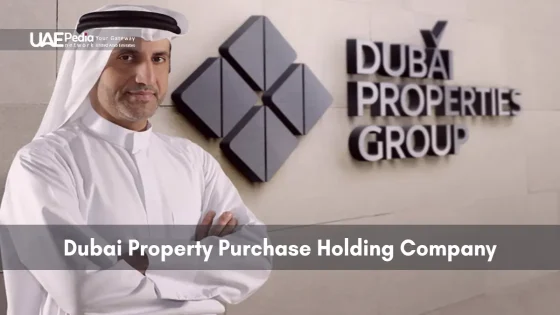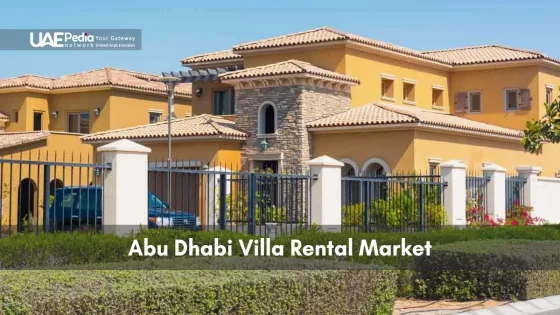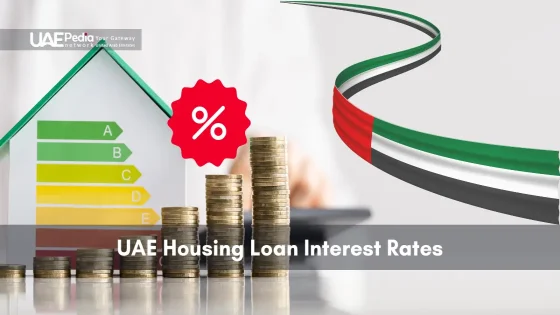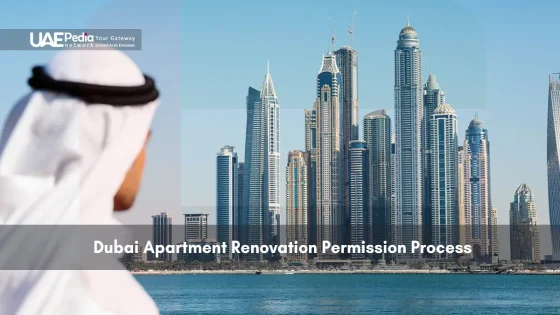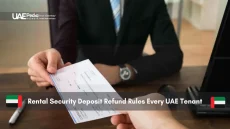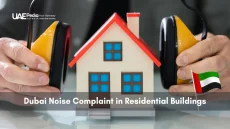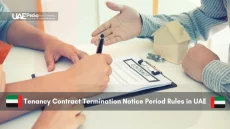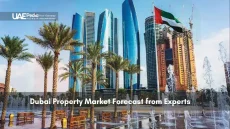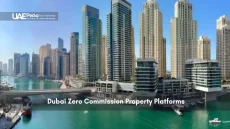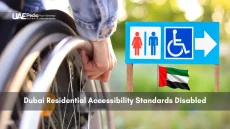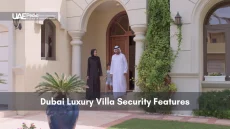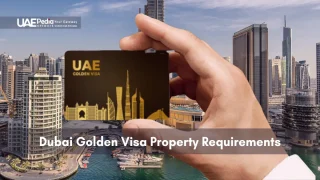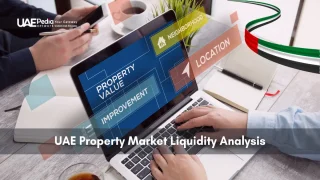What if there was a smarter way to secure international assets while maintaining flexibility across borders? The Emirates’ skyline isn’t just growing taller—it’s becoming a hub for savvy investors seeking modern wealth management solutions. Over 65% of foreign buyers in the region now use specialized corporate frameworks, blending tradition with innovation.
This guide explores how global citizens can access thriving markets through strategic structures. Think of it as building a bridge between ambition and opportunity—one that prioritizes privacy, simplifies succession planning, and adapts to evolving financial landscapes. From discreet asset management to cross-generational security, these tools redefine what’s possible.
We’ll walk through essentials like:
- Tailored approaches for protecting your portfolio
- Balancing cultural awareness with financial efficiency
- Collaborating with established financial districts for seamless transactions
Whether you’re drawn to waterfront developments or commercial towers, understanding these frameworks transforms how you engage with high-growth markets. Let’s explore the path together—no camels required.
Introduction to the Dubai Real Estate Landscape
Ever wondered where the world’s elite are parking their wealth? Look no further than a desert metropolis where innovation meets tradition—and returns outpace global rivals. The city’s skyline isn’t just competing with Manhattan; it’s rewriting the rules of modern wealth creation.
Overview of the Market’s Growth and Potential
Residential values here jumped 20% last year—double New York’s gains—with luxury villas surging even higher. Bloomberg notes this market now delivers triple the rental yields of London prime zones. Why? A golden visa program attracting global talent meets infrastructure spending topping $8 billion annually.
Advantages of Investing in Dubai Property
Zero income tax? Check. Seamless freehold ownership for foreigners? Done. But the real magic lies in strategic frameworks blending privacy with profit. Think Swiss-style discretion meets Singaporean efficiency—all under Middle Eastern sunshine.
Investors aren’t just buying square footage. They’re securing:
- Assets shielded by robust corporate structures
- Cross-border inheritance solutions via DIFC foundations
- Instant access to emerging markets from Africa to Asia
With prices still 30% below 2014 peaks and tourism smashing records, this isn’t speculation—it’s strategic positioning. The question isn’t why invest, but how soon.
Read More:
Understanding the Dynamics of Dubai’s Real Estate Market
Picture this: a city where skyscrapers sprout faster than desert flowers after rain. The market here isn’t just growing—it’s evolving with the precision of a Swiss watch. Foreign capital inflows surged 40% year-over-year, per Bloomberg, as global investors chase yields that outpace traditional hubs like Hong Kong and Zurich.
Current Investment Trends and Demand
Sunseekers and strategists alike are snapping up waterfront residences and tech-ready offices. Why? A perfect storm of tax-free income, streamlined ownership pathways, and rental returns hitting 7-9%—triple Manhattan’s average. Families now prioritize secure ownership structures that simplify generational transfers, while funds eye logistics hubs feeding into Africa’s booming trade corridors.
Comparative Insights with Global Markets
Stack Dubai against London or Singapore, and the math sings. No stamp duties. Zero capital gains tax. Registration fees under 4% versus New York’s 6-8%. One recent study showed commercial leases here deliver 23% higher net yields than Parisian counterparts after costs.
What truly sets this market apart? Agility. When Europe debated wealth taxes, Emirates’ regulators rolled out golden visas tied to investment thresholds. Now 65% of prime residential buyers combine personal use with income-generating strategies—a balance harder to strike in overheated North American markets.
Why a Holding Company is Essential for Your Dubai Property Purchase
Think of your portfolio as a precious artifact—would you display it in an open courtyard or secure it behind museum-grade glass? Modern wealth guardianship demands creative solutions that go beyond basic ownership. Strategic frameworks act like invisible force fields, keeping your treasures safe while letting them work harder for you.
Fort Knox for Your Portfolio
Separating personal and investment assets isn’t just smart—it’s survival. Corporate structures create legal moats that keep creditors and lawsuits at bay. One wealth manager puts it bluntly: “If your name’s on the deed, you’re holding a neon ‘sue me’ sign.”
DIFC Foundations take this further, offering Swiss-style privacy with Middle Eastern efficiency. Your management team operates behind the curtain, while public records show only the company name. No family surnames. No personal addresses. Just clean, anonymous ownership.
Tax Magic and Future-Proof Legacies
Here’s where the real wizardry happens. These structures turn potential inheritance battles into smooth handovers. Assets flow to beneficiaries like water through prepared channels—no probate courts, no public disputes. Tax codes favor corporate ownership, often slashing liabilities compared to individual holdings.
Consider this scenario: A tech entrepreneur holds three properties under a single structure. Annual management costs? Minimal. Inheritance planning? Handled through customizable bylaws. When Dubai introduced succession-friendly regulations, one family office reported 70% faster asset transfers across generations.
The secret sauce lies in local frameworks designed for global citizens. Whether you’re safeguarding beachfront villas or commercial towers, these tools transform risky exposures into fortified wealth engines. Now that’s what we call sleeping soundly.
dubai property purchase holding company: A Strategic Approach
Imagine a puzzle where every piece clicks into place—legal protections here, tax efficiencies there. That’s the power of modern ownership frameworks. These aren’t just legal boxes to check—they’re launchpads for building resilient portfolios across borders.
Key Advantages of Using Corporate Structures
Corporate frameworks act like Swiss Army knives for asset management. They let you consolidate multiple holdings under one roof while keeping personal finances separate. One investor we spoke with described it as “having a financial airlock—risks stay outside, opportunities flow in.”
Freezone entities take this further. Full foreign ownership? Guaranteed. Local registration benefits? Seamless. Transactions often wrap up 30% faster than traditional methods, thanks to pre-approved compliance pathways. Think less paperwork, more beach time.
Integrating DIFC Foundations with Freezone Entities
Here’s where magic happens. Pair a DIFC Foundation—known for ironclad privacy—with a Freezone company’s operational agility. The result? A hybrid structure that navigates regulations like a GPS-guided yacht.
Take the Al-Mansoori family office. By merging these entities, they slashed inheritance processing from 18 months to six weeks. Assets moved smoothly between generations without court battles or public disclosures. Now that’s what we call legacy planning with teeth.
These frameworks don’t just follow rules—they rewrite them. As one DIFC advisor put it: “We’re not building walls. We’re installing revolving doors—secure but welcoming.” Whether you’re eyeing urban towers or desert retreats, this synergy turns complexity into clarity.
Step-by-Step Process for Setting Up Your Holding Company
Ever tried assembling furniture without instructions? Setting up protective frameworks for your investments works similarly—skip the blueprint, and things get wobbly fast. Here’s your no-nonsense guide to building a compliant structure that stands firm against regulatory winds.
Legal and Regulatory Framework in Dubai
First step: Choose your playground. Free zones like DIFC and DMCC offer tailored rules for asset protection, while mainland setups suit broader operational needs. One legal advisor puts it plainly: “Your jurisdiction choice determines 80% of compliance ease—get this wrong, and you’ll fight paperwork dragons forever.”
| Step | Timeline | Key Players |
|---|---|---|
| Initial Approval | 3-5 Days | Freezone Authority |
| Document Submission | 1-2 Weeks | Notary Public + Registered Agent |
| Final Licensing | 5-7 Days | Economic Department |
Essential Documentation and Compliance Requirements
Gather these three essentials like passport stamps:
- Notarized memorandum of association (MOA) with shareholder details
- Bank reference letters showing clean financial history
- Anti-money laundering (AML) compliance certificates
Work with registered agents—they’re your shortcut through bureaucratic mazes. Miss one form? One investor shared: “We lost six weeks over a mismatched address line. Lesson learned: triple-check every comma.”
“Accurate paperwork isn’t just red tape—it’s the golden ticket to unlocking asset protection benefits.”
Coordinate early with tax advisors to align your structure with evolving UAE corporate laws. Most setups wrap in 4-6 weeks if you avoid these common stumbles. Ready to build smarter?
Structuring Your Investment for Optimal Performance
What’s the secret sauce behind bulletproof investment structures? It’s not just about picking assets—it’s crafting a framework where geography meets strategy. Your jurisdiction choice acts like a financial timezone, aligning operations with favorable regulations while shielding gains.
Choosing the Right Jurisdiction: DIFC, JAFZA, or RAKICC
DIFC shines for international financial hubs craving prestige—think 0% tax on profits and world-class arbitration courts. JAFZA? A logistics kingpin offering swift trade licenses and warehouse-linked incentives. RAKICC plays the cost-conscious hero with 48-hour incorporations and budget-friendly fees.
| Jurisdiction | Best For | Tax Perks |
|---|---|---|
| DIFC | High-net-worth estate assets | No corporate/income tax |
| JAFZA | Trade-focused operations | 50-year tax holidays |
| RAKICC | Cost-sensitive setups | 0% import/export duties |
One wealth manager puts it plainly: “DIFC is your Armani suit—impressive but pricey. RAKICC? Reliable jeans-and-blazer combo.” Match the zone to your endgame—privacy seekers lean DIFC, while exporters favor JAFZA’s cargo-friendly policies.
Balancing Ownership, Management, and Risk
Clear property ownership structures act like shock absorbers for market bumps. Separate operational roles from asset titles—let the company manage leases while you retain ultimate control. This split keeps personal liabilities at arm’s length when storms hit.
Tax strategies here resemble chess matches. One investor shares: “We parked income-generating estate assets under JAFZA for tax holidays, while using DIFC for long-term holdings.” Regular audits with local advisors ensure your setup evolves with regulatory shifts.
Three coordination tips for smooth sailing:
- Align jurisdiction choices with 5-year exit strategies
- Layer international financial tools with local entities
- Stress-test structures against inheritance scenarios
Remember—the right framework doesn’t restrict. It liberates your capital to work smarter across borders while keeping risks firmly in check.
Leveraging International Financial Hubs for Strategic Advantage
Picture a global chessboard where your assets move freely across borders—protected, efficient, and primed for growth. International financial hubs like ADGM (Abu Dhabi Global Market) offer game-changing frameworks that transform complex strategies into streamlined plays.
ADGM SPVs: The Modern Wealth Workaround
Special Purpose Vehicles (SPVs) here act like financial Swiss Army knives. Unlike traditional offshore models, ADGM structures provide:
- Direct local registration without residency requirements
- Customizable inheritance planning bypassing forced heirship rules
- Seamless integration with Emirates-based assets
One European investor recently consolidated six properties under a single SPV, slashing annual compliance costs by 42%. As their legal advisor noted: “These frameworks don’t just hold assets—they future-proof legacies.”
Ownership Freedom Meets Regulatory Muscle
100% foreign ownership isn’t just a perk—it’s a strategic lifeline. ADGM’s common-law system provides clarity that traditional jurisdictions often lack. Consider this comparison:
| Feature | ADGM SPV | Traditional Offshore |
|---|---|---|
| Ownership Clarity | Public registry transparency | Opaque nominee structures |
| Inheritance Process | Pre-defined succession protocols | Local court interventions |
| Tax Reporting | CRS-compliant | Increasing scrutiny |
Professional services teams here operate like pit crews—specialists in licensing, compliance, and cross-border planning. One wealth manager shared: “We help clients navigate regulations faster than a falcon dives—precision matters when millions are at stake.”
Managing Regulatory and Compliance Challenges
Navigating legal frameworks can feel like deciphering ancient scrolls—until you learn the local dialect. Staying compliant here isn’t about checklists; it’s about dancing gracefully with evolving rules. One misstep could mean delays, fines, or worse—a frozen asset.
Licensing Made Simple(ish)
Registration processes here demand surgical precision. A recent case saw investors stall for months over unsigned MOA copies—yes, unsigned. The Dubai Land Department now requires:
- Triple-notarized ownership certificates
- Beneficial ownership declarations updated quarterly
- AML screening for all signatories
“Treat paperwork like a first date—overprepare, then double-check everything.”
Tax Twists and Turns
June 2023 changed everything. The UAE introduced corporate tax for entities earning over AED 375k ($102k). Smart structures now blend Freezone perks with mainland obligations. Compare options:
| Structure Type | Tax Rate | Compliance Load |
|---|---|---|
| Freezone Entity | 0% on qualified income | Annual audit + substance reports |
| Mainland Company | 9% over threshold | Monthly VAT filings |
Pro tip: Partner with registered agents who speak “regulation-ese” fluently. They’ll spot landmines like shifting anti-profiteering rules before they detonate your plans.
Check out the below:
Wrapping Up Dubai Property Purchase Through Holding Company
Charting your course through the Emirates’ investment landscape becomes clearer with the right tools. Corporate frameworks act like compasses—guiding you toward privacy, tax efficiency, and generational security while dodging regulatory storms. Individuals and businesses alike gain from separating personal assets from income-generating ventures, creating layers of protection that adapt as markets shift.
Key steps? Start with jurisdiction selection—match your goals to zones like DIFC or JAFZA. Next, prioritize documentation accuracy and local compliance partnerships. Risks like inheritance disputes or shifting tax rules fade when structures are stress-tested by experts familiar with regional nuances.
Final tip: Blend global financial strategies with local frameworks. Whether safeguarding beachfront villas or commercial hubs, a well-built system turns complexities into advantages. For those ready to begin, this strategic setup process offers detailed guidance tailored to modern investors.
Your wealth deserves more than a safe—it needs a launchpad. With the right blueprint, you’re not just acquiring assets. You’re crafting legacies that span borders and generations. Ready to build smarter?
Corporate structures shield personal wealth by legally separating ownership. This setup limits liability risks if disputes arise and keeps your name off public registries—crucial for privacy-focused investors navigating Dubai’s competitive market.
DIFC offers robust inheritance planning tools, allowing asset distribution without UAE probate. Combined with tax-neutral status and English common law frameworks, it’s ideal for global families managing cross-border holdings alongside local properties.
Yes! JAFZA and RAKEZ entities can purchase freehold properties in designated areas. However, licensing must align with the Dubai Land Department’s regulations—always verify zoning rules before finalizing transactions.
The 9% federal tax on profits above 375,000 AED applies to most entities, but freezones often retain 0% rates for qualifying activities. Strategic setups using ADGM SPVs or DMCC companies can optimize compliance while minimizing liabilities.
You’ll need the company’s trade license, board resolution authorizing the purchase, passport copies of shareholders, and a No Objection Certificate from the freezone. Dubai Land Department also requires a registered tenancy contract for commercial assets.
Layering entities—like a Cayman Trust owning a DIFC LLC—adds jurisdictional diversification. This strengthens asset protection, eases succession planning under foreign laws, and streamlines rental income distribution across borders.
